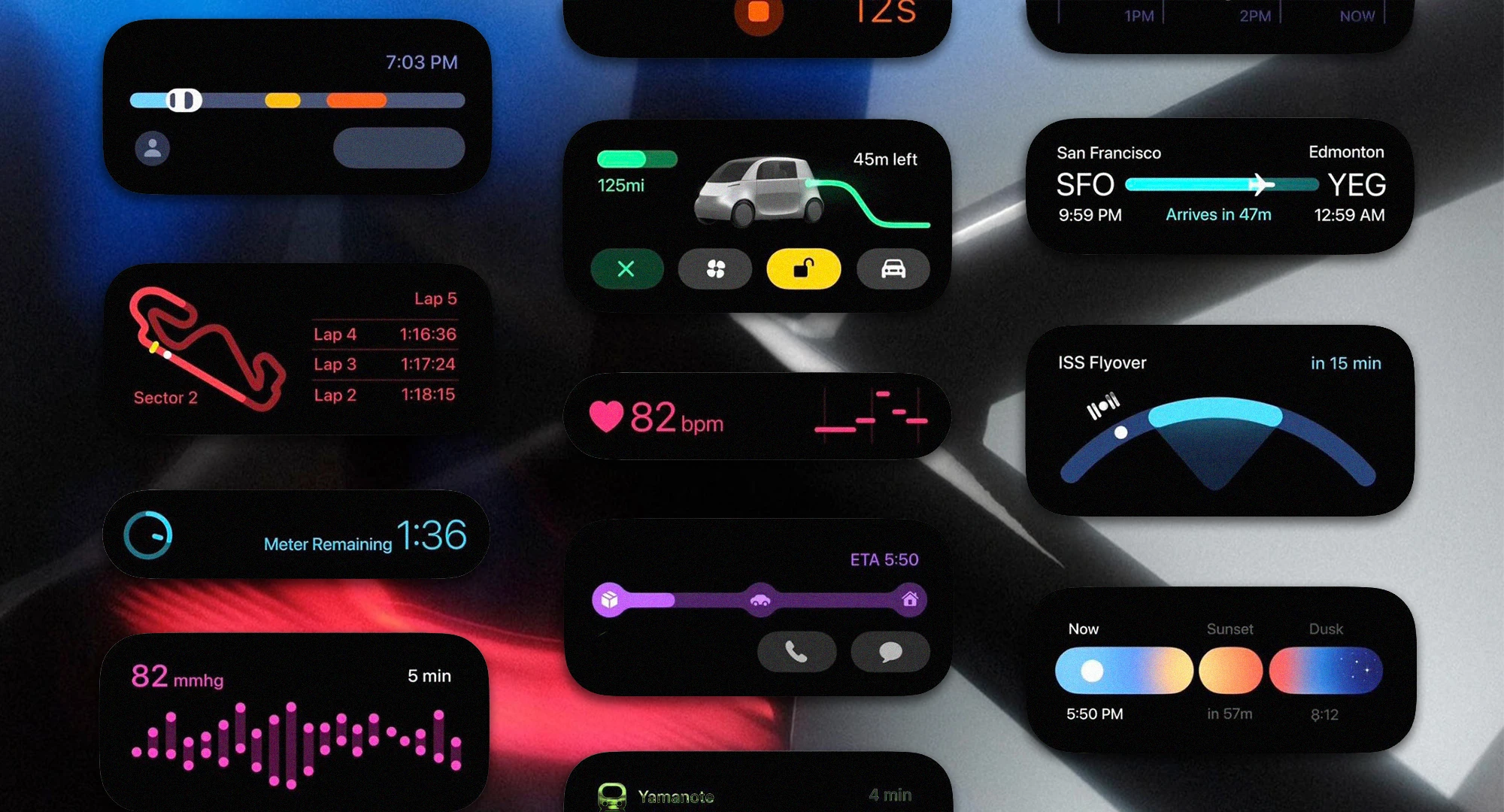
Top Pharmaceutical Web & App Design Agencies to Work With - February 2026
Introduction
Over the past year, web and app design in the pharmaceutical industry has evolved rapidly—driven by rising user expectations, tighter regulations, and the push toward digital-first engagement. In this article, we explore why choosing the right pharmaceutical web & app design agency in February 2026 matters more than ever.
While many companies are expanding internal digital teams, partnering with a pharmaceutical web & app design agency offers critical advantages—from specialized expertise to solving bandwidth and cost challenges. Below, we uncover the top 10 pharmaceutical web & app design agencies helping brands build effective, compliant digital experiences.
Top 10 Pharmaceutical Web & App Design Agencies
1. G & Co.
G & Co. is a pharmaceutical web & app design agency known for creating streamlined, high-impact digital experiences for enterprise pharmaceutical brands.
G & Co. specializes in pharmaceutical web & app design with a focus on strategic UX, regulatory compliance, and end-to-end development for patient portals, HCP engagement platforms, and branded digital tools. The agency partners with global pharma brands to deliver scalable, compliant solutions that improve digital performance and user satisfaction.
G & Co. is a minority business enterprise (MBE), as certified by the National Minority Supplier Development Council (NMSDC). If diversity inclusion is a part of your supplier process, contact us—we may be a great fit for your enterprise.
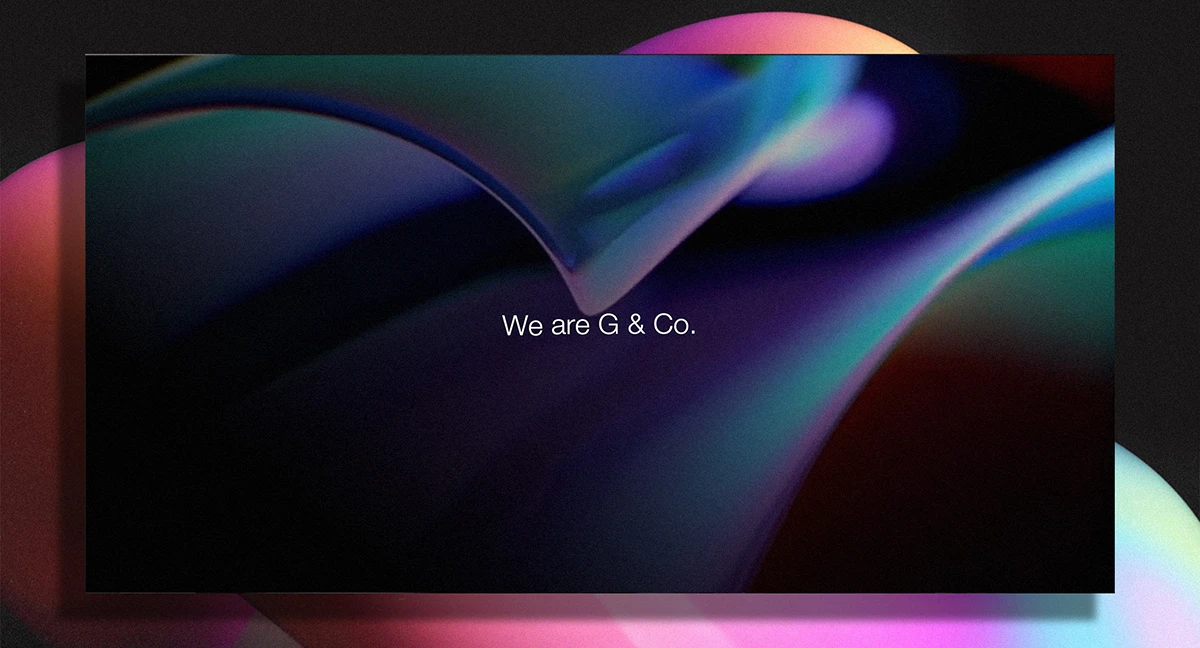
2. Clarity Quest
Clarity Quest is a pharmaceutical web & app design agency focused on biotech, medtech, and pharma sectors.
Their team delivers pharma-specific digital products including websites, patient apps, and provider platforms that are HIPAA-compliant and conversion-optimized. Known for their technical execution and marketing integration, Clarity Quest works with growing life sciences brands to bring clarity and performance to digital ecosystems.
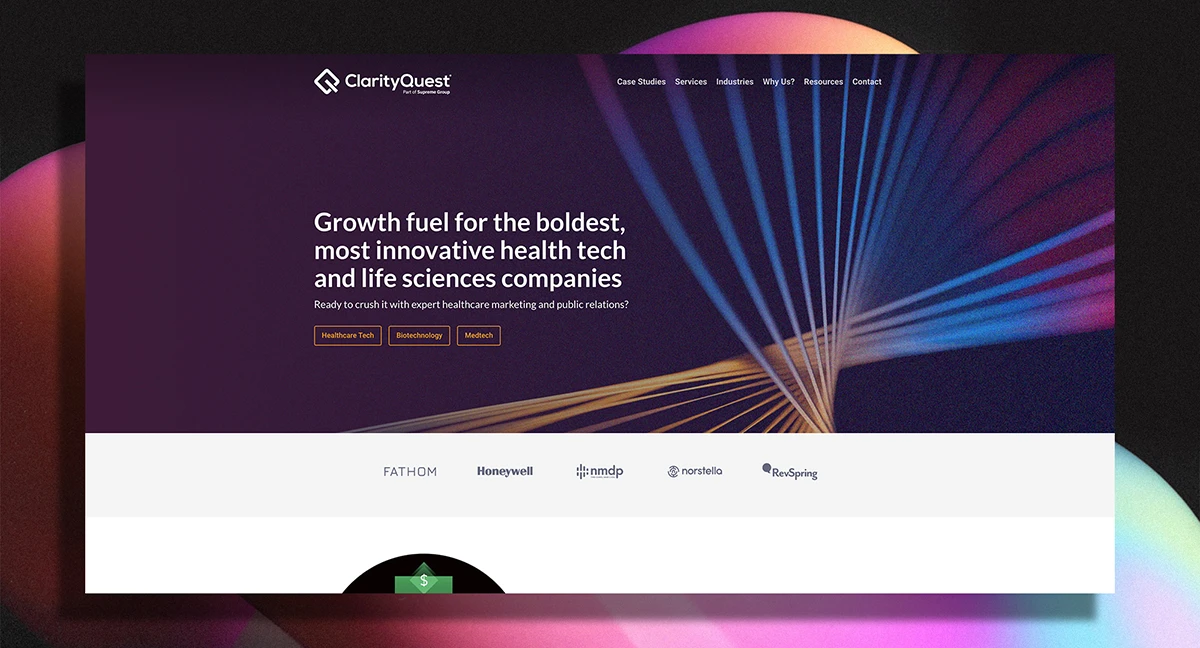
3. Intrepy Healthcare Marketing
Intrepy is a U.S.-based pharmaceutical web & app design agency helping clients develop scalable, secure, and intuitive platforms.
From patient apps to branded microsites, Intrepy’s services are tailored for the pharmaceutical and device sectors, combining front-end design with deep technical functionality. Their work is grounded in SEO and analytics, making them a fit for companies looking for measurable digital growth.
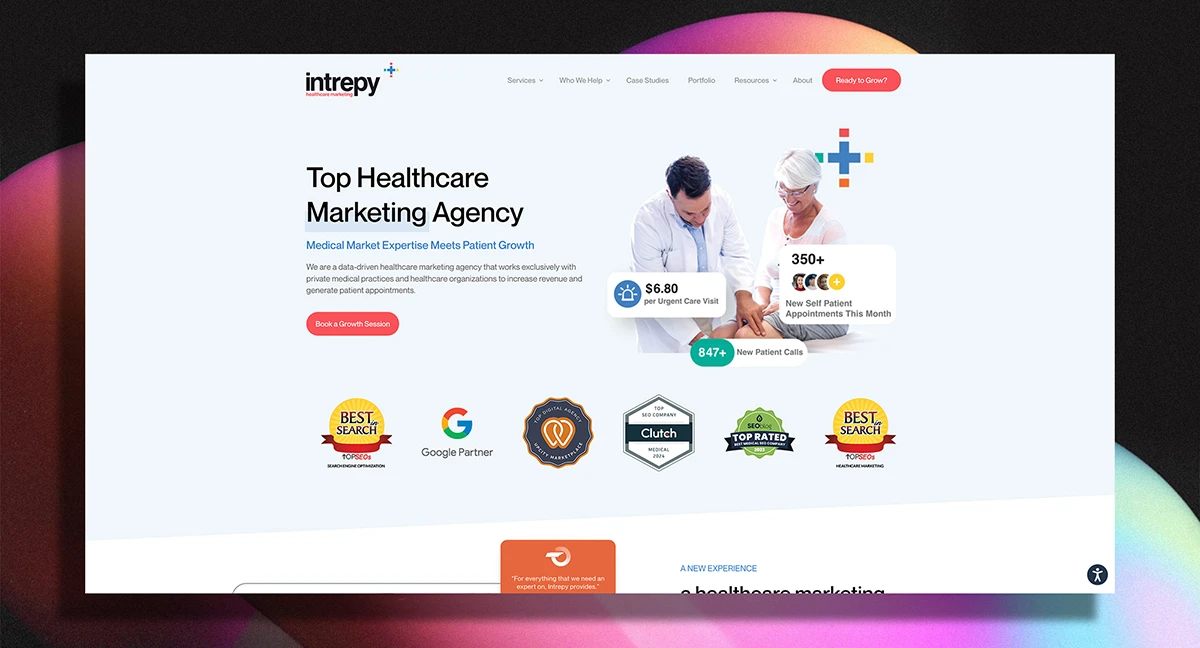
4. The STUDIO
The STUDIO is a pharmaceutical web & app design agency that brings a design-forward lens to healthcare communications.
They offer UX and UI services for pharma websites, HCP portals, and patient engagement platforms. Known for working with emerging pharma brands and research-focused organizations, The STUDIO delivers sleek, accessible digital solutions rooted in user research and design systems.
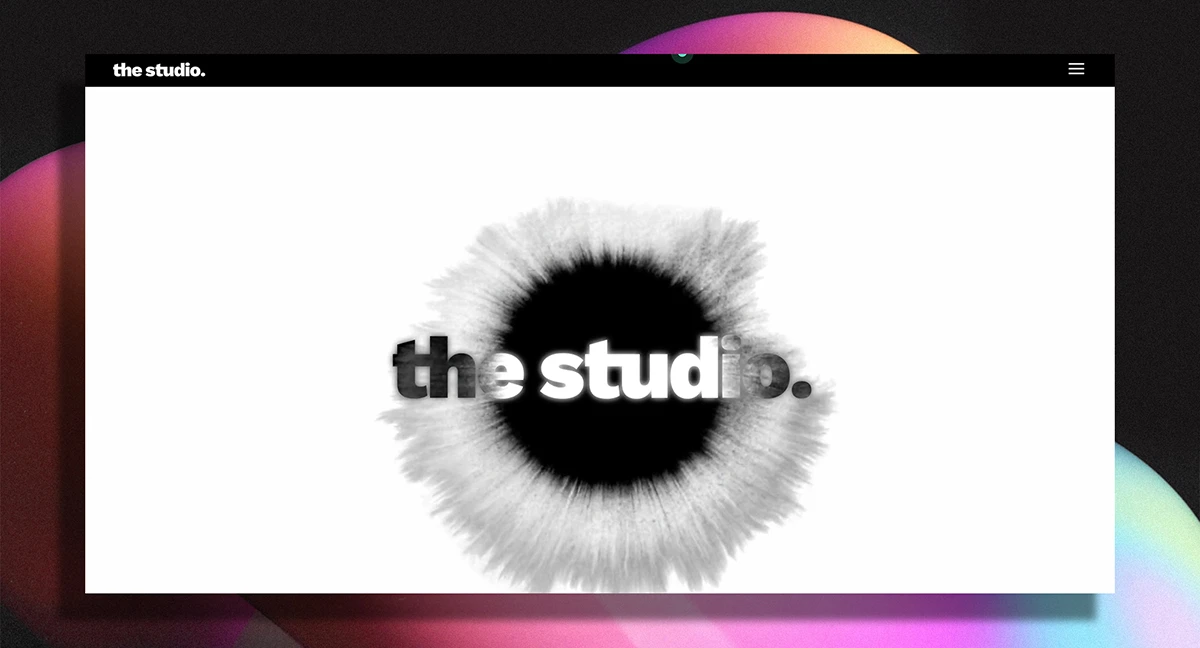
5. Brightscout
Brightscout is a product design and development firm that supports healthcare and pharmaceutical clients with custom digital experiences.
Their pharmaceutical web & app design services focus on transforming complex requirements into clean, modern applications. With experience in HIPAA-compliant app design and healthcare-focused UX, Brightscout works with mid-sized pharma companies looking to scale digital innovation.
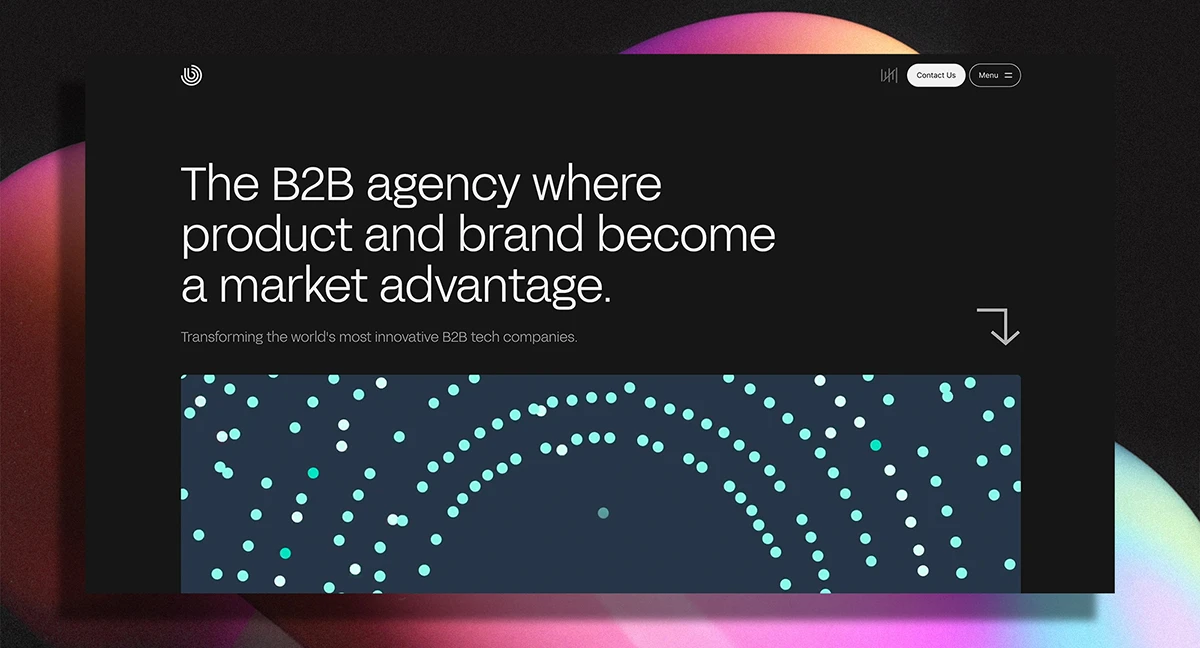
6. Matcha Design
Matcha Design is a boutique agency offering pharmaceutical web & app design services for health brands seeking personalized creative support.
They are known for crafting tailored platforms that integrate storytelling, UX optimization, and compliance. Matcha Design serves regional pharmaceutical brands and has a strong track record in website refreshes and mobile UI for patient education.
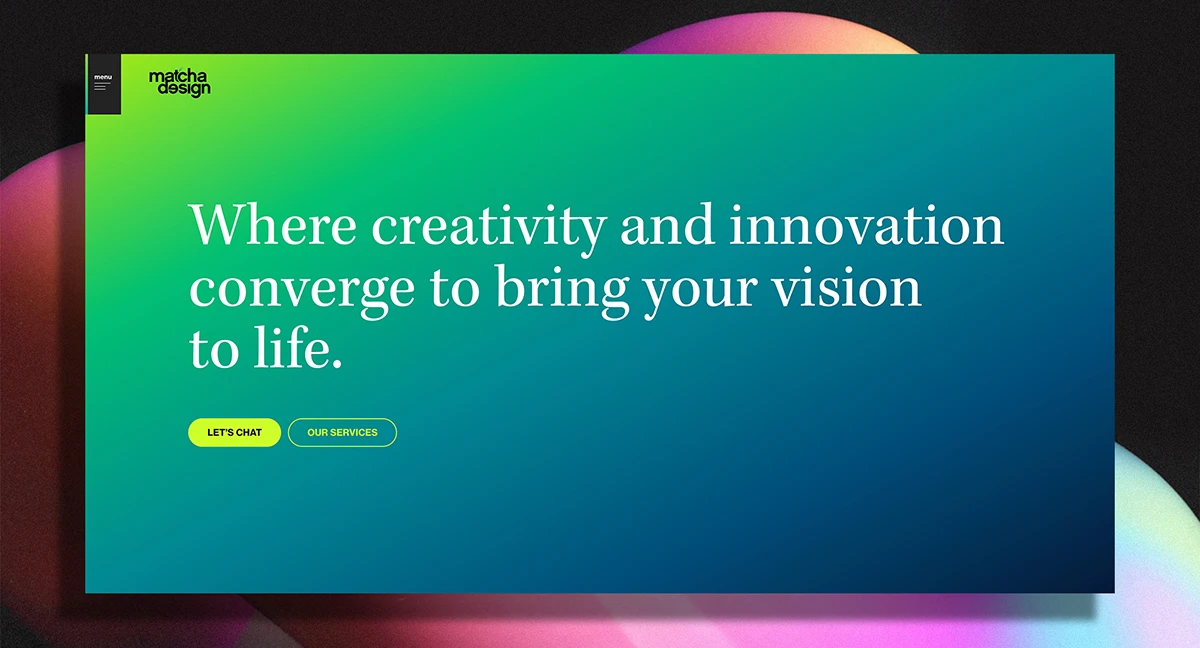
7. DECODE
DECODE is a mobile-focused pharmaceutical web & app design agency known for its technical depth and secure architecture.
Specializing in app development for healthcare and pharma, DECODE supports startups and scale-ups with mobile-first design, UX prototyping, and custom backend integration. They are a fit for pharma companies seeking reliable app performance and data security.
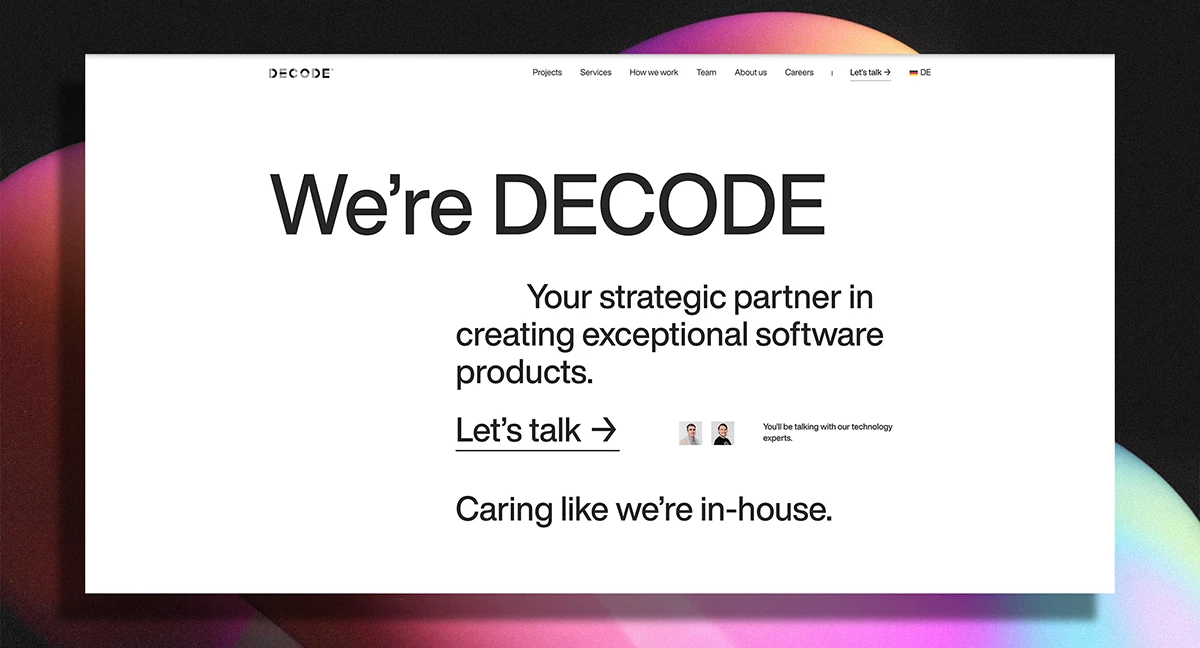
8. bfw Advertising
bfw is a healthcare marketing agency that offers web and app design capabilities for pharmaceutical clients across the U.S.
They specialize in patient recruitment platforms, physician-facing websites, and digital campaigns that are built around FDA and HIPAA standards. bfw is often selected by regional or emerging pharma brands for their creative and pragmatic digital execution.
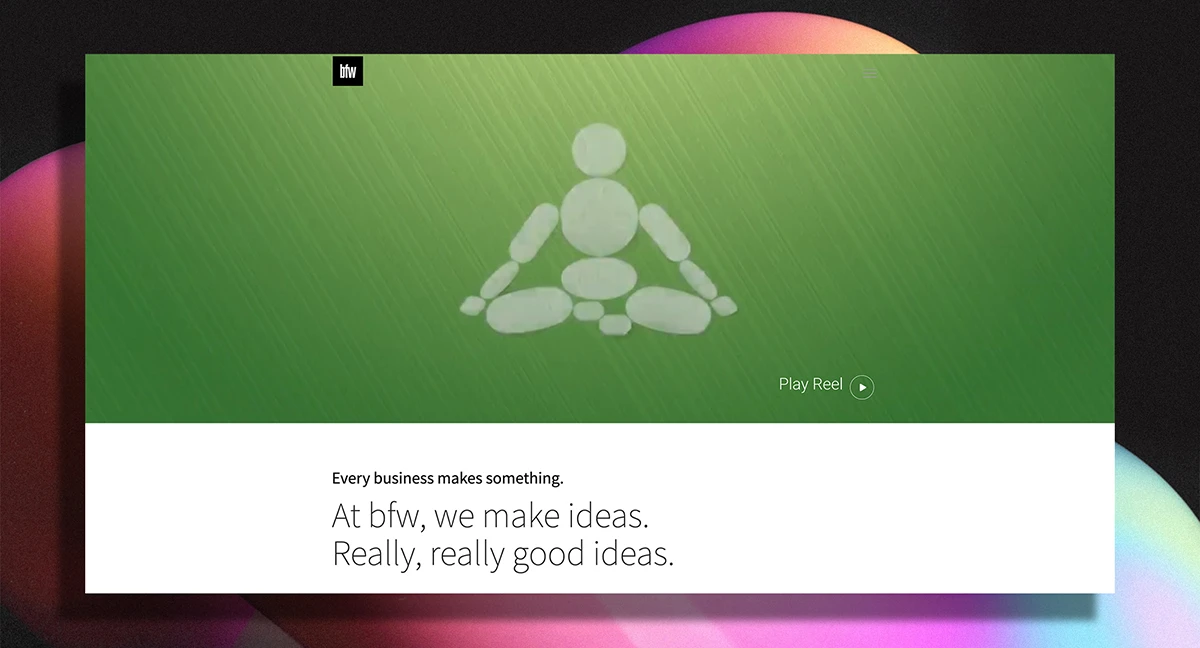
9. Mindgrub
Mindgrub offers pharmaceutical web & app design solutions as part of its broader digital service offering.
With experience across mobile health, patient portals, and provider tools, Mindgrub helps pharma companies create useful, compliant digital products. They’ve worked with mid-market brands in healthcare and are known for balancing design with functionality.
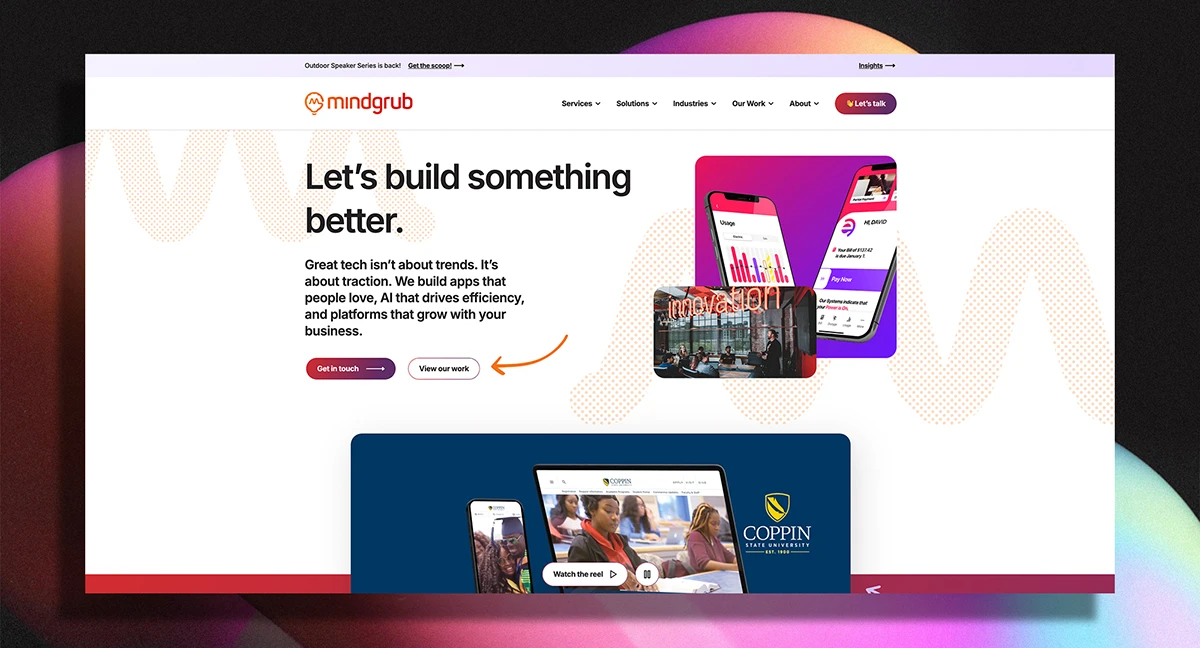
10. Unleashed Technologies
Unleashed Technologies delivers scalable pharmaceutical web & app design focused on usability, speed, and compliance.
They offer UX/UI design, CMS builds, and web app architecture tailored to pharmaceutical clients. Known for technical rigor and platform scalability, Unleashed Technologies works with pharmaceutical companies seeking structured, high-performing digital systems.
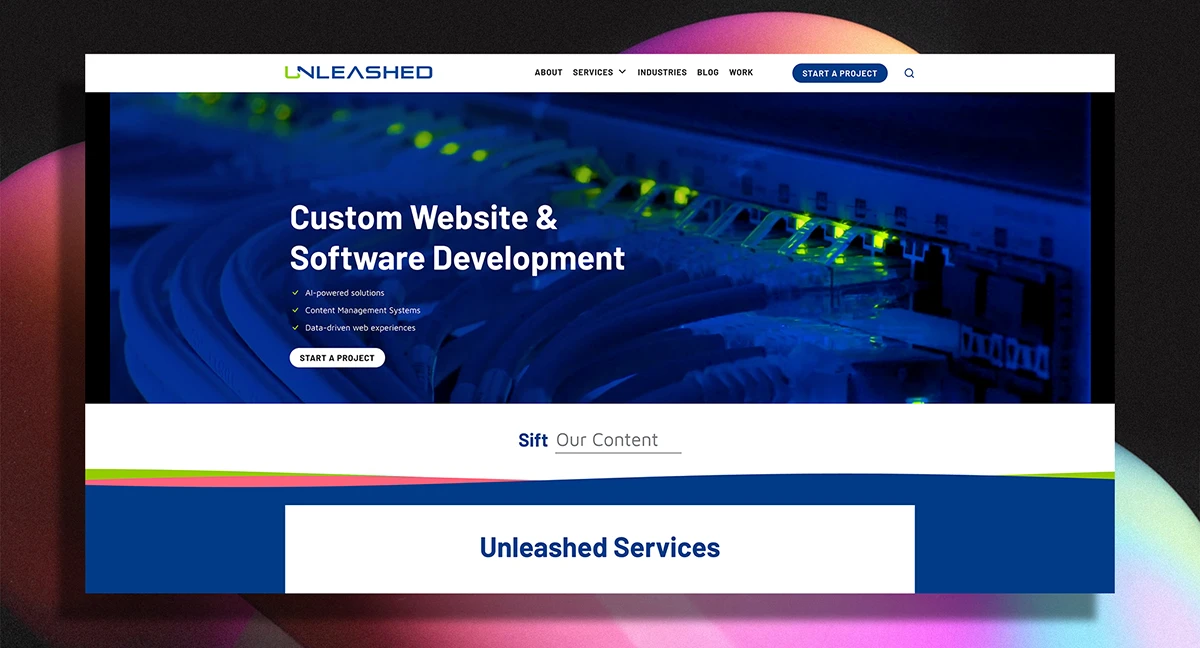
What Services Do Pharmaceutical Web & App Design Agencies Provide?
UX/UI Design
UX/UI design is a core service offered by pharmaceutical web & app design agencies to create pharma web design services that deliver intuitive, accessible, and audience-focused digital experiences for patients, healthcare professionals, and internal teams. These agencies use user research, behavior mapping, and usability testing to build pharma mobile apps and websites that promote treatment adherence, provider education, and content discoverability while meeting pharmaceutical web design company standards for accessibility, accuracy, and regulatory compliance.
Information Architecture & Content Strategy
Pharmaceutical web design agencies help clients organize complex scientific and regulatory content through effective information architecture and content strategy. This includes developing navigation systems, taxonomies, and search functions within pharma web design services that make clinical data, prescribing information, and medical education easily accessible without overwhelming users. Strong content strategies ensure pharmaceutical web design services align tightly with Medical, Legal, and Regulatory (MLR) guidelines and brand messaging.
Full-Stack Web Development
Pharmaceutical web & app design agencies deliver full-stack pharma web design services, covering both front-end development and back-end integration with systems like CRMs, EHRs, and pharmacovigilance platforms. These pharmaceutical web design companies prioritize HIPAA, GDPR, and FDA compliance, site speed, cross-device compatibility, and flexible deployment processes to keep pharma mobile apps and websites up to date with evolving regulatory and product requirements.
Mobile App Design & Development
Pharmaceutical mobile app design agencies specialize in building pharma mobile apps that support patient adherence, healthcare professional education, and field force engagement. These apps incorporate HIPAA-compliant frameworks, secure logins, content personalization, data tracking, and offline functionality, resulting in branded, effective tools that enhance engagement and deliver measurable results across the pharmaceutical web & app design landscape.
Regulatory Compliance & Quality Assurance
Pharmaceutical web & app design agencies ensure all pharma web design services and pharma mobile apps comply with FDA, EMA, HIPAA, and GDPR standards. Their processes include audit-ready documentation, MLR review cycles, and rigorous testing protocols that verify both functionality and content integrity. Ongoing quality assurance is also provided to maintain compliance during updates and enhancements.
Hosting, Maintenance & Support
Beyond initial launch, pharmaceutical web design agencies offer hosting, maintenance, and support services essential for uptime, security, and content accuracy. These pharma web design services include performance monitoring, regulatory update implementation, and technical support, helping pharmaceutical companies avoid risks associated with downtime or outdated content in their pharma mobile apps and web platforms.
Analytics, Reporting & Optimization
Pharmaceutical web & app design agencies provide analytics tracking and optimization services to ensure digital platforms meet business objectives and user needs. They set up dashboards for KPIs like HCP engagement, patient tool utilization, and clinical trial sign-ups, using these insights to guide iterative improvements in pharma web design services, pharmaceutical app design, and pharma mobile apps—maximizing digital ROI while maintaining compliance.
Let’s kickstart the conversation and design stuff people will love.

How Long Does a Pharmaceutical Web & App Design Engagement Take to Complete?

Understanding the typical timelines of a pharmaceutical web & app design agency is crucial for managing expectations around planning, resourcing, and launch readiness. Pharma web design projects often involve multiple stakeholders, regulatory reviews, and technical complexities that can extend timelines beyond standard digital engagements. From initial discovery through UX/UI design, pharma web design services, pharmaceutical app design development, compliance review, and final deployment, each phase requires precise coordination to ensure the pharmaceutical web design company delivers a product that meets both business goals and industry regulations. The following section outlines typical durations for each stage and key factors influencing how long a pharma web or app design project takes from start to finish.
Scope and Complexity of the Project
The broader and more technically complex the engagement, such as developing a full suite of pharma web design services and pharma mobile apps for HCPs, patients, and internal users, the longer the timeline. Projects involving multiple user types, multilingual content, backend integrations, or advanced features like dosage calculators and authentication layers require extended discovery, development, and validation phases. Pharmaceutical web design agencies advise clients to expect longer engagements for enterprise-scale platforms or apps with significant regulatory exposure.
Regulatory Review Cycles
MLR (Medical, Legal, and Regulatory) review processes heavily influence timelines, especially for projects with drug-related content or claims requiring legal validation. Pharmaceutical web & app design agencies build buffer time into schedules to manage multiple feedback loops and document submissions. Delays in MLR feedback or late-stage changes can extend timelines, making early MLR involvement critical to reducing downstream risks in pharma web design projects.
Stakeholder Alignment and Decision-Making
Delays often occur when internal stakeholders lack alignment on goals, content, or design direction. Pharmaceutical web design agencies encourage structured check-ins, streamlined communication, and clear approval hierarchies to maintain project momentum. Fragmented or iterative client decision-making can stretch timelines, so clear governance models are key to efficient pharma web design service delivery.
Content Readiness and Availability
Content availability and quality often impact project timing. Pharmaceutical content requires collaboration with medical writers, legal teams, and KOLs (Key Opinion Leaders). Pharmaceutical web & app design agencies depend on timely delivery of assets, from product data to patient education materials, to keep pharma mobile app and website development on schedule. Missing or late content can delay review cycles and launch.
Design and UX Feedback Cycles
UX/UI design in pharmaceutical web & app design agencies involves iterative collaboration, especially given varied user needs across patients, providers, and caregivers. Multiple design review rounds, stakeholder feedback, and usability testing are standard, with extended feedback cycles or late changes potentially adding weeks to project timelines, particularly if these changes affect compliance or development stages.
Development and Technical Integration
Pharma web design services often require complex integrations with CRMs, EHRs, marketing automation, or custom APIs, demanding additional development time and rigorous technical testing. Pharmaceutical web design agencies must ensure all integrations comply with data privacy laws like HIPAA and GDPR, adding QA steps. The more interdependent the systems, the longer it takes to validate security, performance, and functionality before deployment.
Testing, QA, and Compliance Validation
Pharmaceutical web & app design projects involve comprehensive testing protocols—including functional testing, accessibility audits, security checks, and compliance validation—that are essential in the regulated pharma industry. These phases often add several weeks at the end of the timeline, with multiple QA rounds and user acceptance testing (UAT) environments before launch.
Post-Launch Support and Iteration
After launch, pharmaceutical web design agencies often continue to provide support for technical stabilization, feature enhancements, and performance optimization based on analytics. This post-launch phase can extend overall timelines and should be factored into planning and budgeting for ongoing pharma mobile app and web platform success.
How Pharmaceutical Web & App Design Agencies Price Their Work
When selecting a pharmaceutical web & app design agency, understanding pricing is essential for effective planning and decision-making. Pharma web design projects often require specialized expertise, regulatory oversight, and multi-phase development, all of which impact cost structures. Unlike typical web or app initiatives, pharmaceutical web design services demand compliance-driven design, comprehensive QA, and ongoing post-launch support, making pricing models more complex and variable. The following section highlights key factors influencing costs and what prospective clients should expect when budgeting for pharmaceutical web & app design engagements.
Project Scope and Complexity
The scope and technical complexity of a pharmaceutical web & app design project heavily influence pricing. Larger initiatives involving multiple user types, third-party integrations, or advanced features like patient portals and clinical trial tools require more resources and time, leading to higher costs. Pharmaceutical web design agencies price engagements based on the effort needed to deliver compliant, scalable, and user-friendly pharma web design services tailored to each client’s needs.
Regulatory and Compliance Requirements
Pharmaceutical projects incur additional costs due to strict FDA, HIPAA, GDPR, and other regulatory compliance. Pharmaceutical web & app design agencies allocate resources for extensive review cycles, documentation, and quality assurance processes to ensure all pharma mobile apps and websites meet legal and industry standards. These compliance efforts increase project complexity and are factored into pricing models.
Design and User Experience Complexity
Projects that require deep UX research, multiple design iterations, or custom interactive elements generally command higher fees. Pharmaceutical web & app design agencies consider the sophistication of pharma web design and the user testing necessary to address diverse audiences—patients, healthcare professionals, and internal users—when setting prices. More tailored, validated user experiences result in higher costs.
Technology Stack and Integrations
The choice of technology and need for integration with systems like EHRs, CRMs, or data analytics platforms impact pricing. Pharmaceutical web design companies include custom API development, secure data handling, and cross-platform compatibility in their cost structures, reflecting the specialized technical expertise required for pharma mobile apps and web platforms.
Project Timeline and Resource Allocation
Tighter deadlines or accelerated schedules often require pharmaceutical web & app design agencies to deploy larger teams or extended hours, increasing costs. Conversely, flexible timelines allow phased approaches that optimize resources. Pricing models typically correlate timeline demands with agency capacity to deliver pharma web design services efficiently.
Ongoing Maintenance and Support
Pharmaceutical digital platforms require ongoing maintenance to stay compliant, secure, and updated with content or features. Many pharmaceutical web design agencies offer maintenance contracts or retainer-based support, which add recurring costs to the overall investment in pharma mobile apps and websites.
Customization versus Template-Based Solutions
Pricing also varies depending on whether a project involves fully custom pharma web design services or uses existing templates and frameworks. Customized pharmaceutical web design agencies invest more resources in meeting specific brand and regulatory needs, resulting in higher pricing, while template-based solutions may lower costs but offer less flexibility and uniqueness.
Why Hire a Pharmaceutical Web & App Design Agency

Partnering with a specialized pharmaceutical web & app design agency offers distinct advantages that internal teams or generalist agencies often can’t provide. These pharma web design agencies combine deep industry knowledge with technical expertise to navigate complex regulatory requirements while delivering engaging, user-focused pharma web design services. Collaborating with a dedicated pharmaceutical web design agency helps pharma companies accelerate time to market, reduce compliance risks, and access tailored pharmaceutical app design agency solutions crafted for patients, healthcare providers, and other key stakeholders. The following section outlines why working with a pharmaceutical web & app design agency is a strategic asset for any pharma brand’s digital initiatives.
Specialized Industry Expertise
Pharmaceutical web & app design agencies bring deep knowledge of the pharma industry’s unique regulatory environment, medical content needs, and user requirements. This expertise ensures pharma web design services deliver platforms optimized for user engagement while fully complying with FDA, HIPAA, and other regulations. Partnering with a pharmaceutical web design agency familiar with pharmaceutical communication nuances reduces risk and enhances digital product credibility and effectiveness.
Access to Cross-Functional Teams
These pharmaceutical web & app design agencies provide clients with multidisciplinary teams—including UX designers, medical writers, developers, and regulatory specialists—working seamlessly throughout the project. This integrated approach offers pharmaceutical companies access to specialized skills often unavailable internally, ensuring comprehensive, technically robust pharma web design services aligned with strategic business goals.
Efficiency and Scalability
Pharmaceutical web & app design agencies leverage established processes, tools, and frameworks to accelerate project timelines without sacrificing quality or compliance. Their experience enables quick scaling of resources based on project needs, managing complexity efficiently. This agility helps pharma companies meet tight deadlines and adapt to evolving scopes in their pharma mobile app and web design projects.
Risk Mitigation and Compliance Management
Navigating regulatory complexity is a key challenge in pharmaceutical digital projects. Pharmaceutical web design agencies implement built-in compliance workflows and quality assurance protocols to proactively manage these risks. Their structured approach to MLR reviews, security standards, and data privacy reduces the chances of regulatory delays or non-compliance penalties in pharma web design services.
Innovative User-Centered Solutions
Pharmaceutical web & app design agencies focus on user-centered experiences that boost engagement, treatment adherence, and education for patients, healthcare providers, and other audiences. Using behavioral science, usability testing, and data analytics, these pharmaceutical app design agencies craft pharma mobile apps and websites that resonate with users, supporting improved health outcomes and brand loyalty.
Ongoing Support and Optimization
The pharmaceutical industry constantly evolves with changing regulations and patient needs. Pharmaceutical web & app design agencies provide post-launch support, maintenance, and optimization to keep pharma web design services secure, compliant, and effective over time. This ongoing partnership helps pharmaceutical companies sustain digital platform performance and quickly respond to market changes.
How to Choose The Most Reliable Pharmaceutical Web & App Design Agency
Choosing the right pharmaceutical web & app design agency is a crucial decision that can greatly influence the success of a company’s digital initiatives. Given the pharma industry’s complex regulatory landscape, diverse user needs, and unique technical challenges, partnering with a pharmaceutical web design agency that offers the right expertise, proven processes, and cultural alignment is essential. This section highlights key criteria to help pharmaceutical companies evaluate and select a pharmaceutical web & app design agency capable of delivering compliant, user-focused, and effective pharma web design services and pharma mobile apps that support their strategic objectives.
Relevant Pharmaceutical Industry Experience
When choosing a pharmaceutical web & app design agency, prioritizing firms with proven experience in the pharmaceutical or life sciences sectors is essential. Pharmaceutical web design agencies familiar with industry regulations, stakeholder needs, and project complexities can better navigate compliance challenges and deliver pharma web design services tailored to the sector’s unique requirements, reducing onboarding time and improving project predictability.
Regulatory and Compliance Expertise
Given the strict regulatory environment around pharmaceutical digital platforms, an agency’s expertise in FDA, HIPAA, GDPR, and related regulations should be a top consideration. The right pharmaceutical web design agency will have established workflows for Medical, Legal, and Regulatory (MLR) reviews and rigorous quality assurance processes to ensure pharma mobile apps and websites meet compliance standards, minimizing risks of delays or penalties.
Technical Capabilities and Integration Experience
Pharmaceutical web & app design projects often require seamless integration with backend systems like electronic health records (EHR), customer relationship management (CRM) platforms, or data analytics tools. Agencies should demonstrate strong technical proficiency in secure data handling, API development, and scalable architecture to ensure pharma web design services integrate smoothly into existing client ecosystems.
User-Centered Design Approach
Pharmaceutical digital platforms serve diverse audiences including patients, healthcare providers, and internal users. Pharmaceutical web & app design agencies that prioritize UX design, usability testing, and accessibility show a commitment to creating intuitive, effective pharma mobile apps and websites that drive engagement and positive health outcomes, which is critical for maximizing adoption and satisfaction.
Collaborative Communication and Project Management
Successful pharmaceutical web & app design engagements require clear communication and efficient project management. Agencies should offer transparent workflows, structured feedback cycles, and dedicated points of contact to keep stakeholders aligned and informed. Effective collaboration reduces misunderstandings and helps maintain timelines and budgets.
Post-Launch Support and Scalability
Pharmaceutical digital platforms require ongoing maintenance to remain compliant, secure, and up to date with evolving regulations and user needs. Pharmaceutical web design agencies should provide robust post-launch support—including updates, monitoring, and optimization—and deliver scalable solutions that accommodate future feature enhancements or growing user bases.
15 Questions To Ask Pharmaceutical Web & App Design Agencies Before You Hire One

Before partnering with a pharmaceutical web & app design agency, prospective clients often have critical questions to determine whether the agency aligns with their specific goals and regulatory requirements. These questions typically focus on the agency’s pharmaceutical web design expertise, development processes, and ability to navigate the complexities of FDA, HIPAA, and other compliance standards. Understanding how an agency approaches strategy, communication, and delivery helps decision-makers evaluate whether the firm can successfully execute pharmaceutical web and mobile app projects. The following section outlines common questions companies should ask when selecting a pharmaceutical web design agency to ensure alignment, reduce risk, and make informed, confident decisions.
Here are 15 questions a prospective client might ask before hiring a pharmaceutical web & app design agency:
- What experience do you have working specifically with pharmaceutical or life sciences clients?
- How do you ensure compliance with FDA, HIPAA, GDPR, and other relevant regulations during design and development?
- Can you describe your process for managing Medical, Legal, and Regulatory (MLR) review cycles?
- What types of pharmaceutical web and app projects have you completed, and can you share relevant case studies?
- How do you approach user experience design for diverse audiences such as patients, healthcare providers, and internal teams?
- What technical capabilities do you have, especially regarding integration with EHR, CRM, or other healthcare systems?
- How do you handle data security and privacy throughout your projects?
- What is your typical project timeline for a pharmaceutical web or app design engagement?
- How do you manage communication and collaboration with client teams during the project?
- What is your approach to testing, quality assurance, and accessibility compliance?
- Can you support multi-language or global pharmaceutical projects?
- How do you handle content strategy and ensure medical accuracy in your digital products?
- What post-launch support and maintenance services do you offer?
- How do you measure and report on the success of the web or app solutions you deliver?
- What distinguishes your agency from others in the pharmaceutical web & app design space?
What Experience Do You Have Working Specifically With Pharmaceutical or Life Sciences Clients?
Experience within the pharmaceutical or life sciences sector is critical because these industries operate under unique regulatory, ethical, and scientific standards. Agencies with proven expertise understand the complexities of medical content, compliance requirements, and stakeholder engagement. Asking this question helps ensure the agency can navigate these challenges effectively and deliver solutions tailored to the industry’s specific needs.
How Do You Ensure Compliance With FDA, HIPAA, GDPR, and Other Relevant Regulations During Design and Development?
Regulatory compliance is non-negotiable in pharmaceutical digital projects. Understanding how an agency incorporates FDA, HIPAA, GDPR, and other relevant standards into their workflows reveals their ability to mitigate legal risks. This question also highlights whether the agency has established processes to keep your project aligned with ever-evolving regulatory landscapes, protecting your brand and patients’ data privacy.
Can You Describe Your Process for Managing Medical, Legal, and Regulatory (MLR) Review Cycles?
The MLR review process is often one of the longest and most complex phases of pharmaceutical web and app development. Agencies with a clear and structured approach to MLR management help prevent delays by facilitating timely, transparent feedback and aligning all stakeholders. This question helps you assess whether the agency can efficiently navigate these reviews while maintaining project momentum.
What Types of Pharmaceutical Web and App Projects Have You Completed, and Can You Share Relevant Case Studies?
Reviewing an agency’s past projects and case studies provides concrete evidence of their capabilities and industry knowledge. It allows you to evaluate the quality of their work, their ability to handle projects similar to yours, and the outcomes they’ve achieved for other pharmaceutical clients. This question helps set realistic expectations and builds confidence in the agency’s ability to deliver.
How Do You Approach User Experience Design for Diverse Audiences Such as Patients, Healthcare Providers, and Internal Teams?
Pharmaceutical digital platforms serve multiple user groups, each with distinct needs and technical proficiency. An agency’s approach to UX design reveals how well they understand these audiences and whether they can create intuitive, accessible, and effective experiences. This question ensures the agency prioritizes usability and engagement across all stakeholders.
What Technical Capabilities Do You Have, Especially Regarding Integration With EHR, CRM, or Other Healthcare Systems?
Integration with electronic health records (EHR), customer relationship management (CRM) platforms, and other healthcare systems is often essential for pharmaceutical web and app projects. Asking about technical capabilities uncovers whether the agency can build secure, interoperable solutions that fit seamlessly into your existing technology environment, which is key to maximizing efficiency and data accuracy.
How Do You Handle Data Security and Privacy Throughout Your Projects?
Data security and privacy are paramount in healthcare, where sensitive patient and clinical information is involved. This question helps determine if the agency follows industry best practices for encryption, access controls, and compliance with data protection regulations. Ensuring robust security protocols protects both your organization and end users from potential breaches and legal consequences.
What Is Your Typical Project Timeline for a Pharmaceutical Web or App Design Engagement?
Understanding typical timelines provides clarity on how long each project phase takes and helps you plan accordingly. Since pharmaceutical projects often involve regulatory reviews and multiple stakeholders, timelines can vary significantly from other industries. This question allows you to assess whether the agency’s delivery schedule aligns with your business goals and market windows.
How Do You Manage Communication and Collaboration With Client Teams During the Project?
Effective communication and collaboration are vital to keeping projects on track and aligned with client expectations. This question uncovers the agency’s processes for regular updates, feedback collection, and issue resolution. Transparent workflows and designated points of contact reduce misunderstandings and help ensure a smooth partnership throughout the engagement.
What Is Your Approach to Testing, Quality Assurance, and Accessibility Compliance?
Rigorous testing and quality assurance are essential to delivering a high-quality pharmaceutical digital product that works reliably and meets accessibility standards. Agencies should have established protocols for functional testing, security audits, and ensuring compliance with guidelines such as WCAG. This question helps you evaluate the thoroughness and professionalism of the agency’s delivery process.
Can You Support Multi-Language or Global Pharmaceutical Projects?
Many pharmaceutical companies operate globally and need digital platforms that serve diverse linguistic and cultural audiences. Asking about multi-language support ensures the agency can manage localization, translation workflows, and region-specific compliance requirements. This capability is key for scaling your digital presence and maintaining consistency across markets.
How Do You Handle Content Strategy and Ensure Medical Accuracy in Your Digital Products?
Pharmaceutical content must be medically accurate, clear, and compliant with regulatory standards. This question probes how the agency collaborates with medical writers, legal teams, and subject matter experts to develop and manage content. Strong content strategy ensures that users receive trustworthy information that supports patient safety and brand credibility.
What Post-Launch Support and Maintenance Services Do You Offer?
Digital products require ongoing updates, security patches, and feature enhancements, especially in the pharmaceutical industry where regulations and clinical information evolve rapidly. This question helps you understand the agency’s commitment to supporting your platform beyond launch and whether they offer scalable maintenance plans to ensure long-term success.
How Do You Measure and Report on the Success of the Web or App Solutions You Deliver?
Measuring impact through analytics and performance metrics is essential for demonstrating ROI and guiding continuous improvement. Agencies should have frameworks for tracking user engagement, conversion rates, and other KPIs relevant to your business goals. This question clarifies how the agency uses data to optimize the platform and inform strategic decisions.
What Distinguishes Your Agency From Others in the Pharmaceutical Web & App Design Space?
Understanding what sets an agency apart helps you evaluate their unique strengths, culture, and approach to challenges. This question encourages the agency to articulate their competitive advantages, whether in innovation, compliance expertise, client service, or technical capabilities. Their answer can provide insight into how well they align with your company’s values and project needs.
Searching For The Right Pharmaceutical Web & App Design Agency?
Hiring a pharmaceutical web & app design agency with specialized expertise offers distinct advantages that go far beyond general digital development. These agencies understand the complexities of pharmaceutical industry regulations, user expectations, and technical integration. Their deep knowledge of compliance standards like FDA, HIPAA, and GDPR ensures that every web or app solution meets regulatory requirements while delivering intuitive, user-friendly experiences. By creating digital platforms tailored to the needs of patients, providers, and internal teams, pharmaceutical web design agencies help improve engagement, adherence, and communication. In addition, their structured workflows streamline MLR reviews, reduce project risk, and support faster launches—key advantages in a fast-moving healthcare landscape.
G & Co. is a pharmaceutical web & app design agency trusted by leading life sciences brands for its unique combination of digital strategy, regulatory expertise, and design excellence. With a team of experts across UX design, development, medical content, and compliance, G & Co. delivers scalable and secure digital platforms built specifically for pharmaceutical companies. Their focus on user-centered design, transparent collaboration, and measurable results helps clients bring compliant, high-performing solutions to market with speed and confidence. For pharma brands seeking a reliable partner to lead complex digital initiatives, G & Co. offers the capabilities and commitment to deliver long-term value.
Submit an inquiry to G & Co. on our contact page or click on the blue "Click to Contact Us" button on the bottom right corner of your screen for your convenience. We look forward to hearing from you.






%20(1).png)


